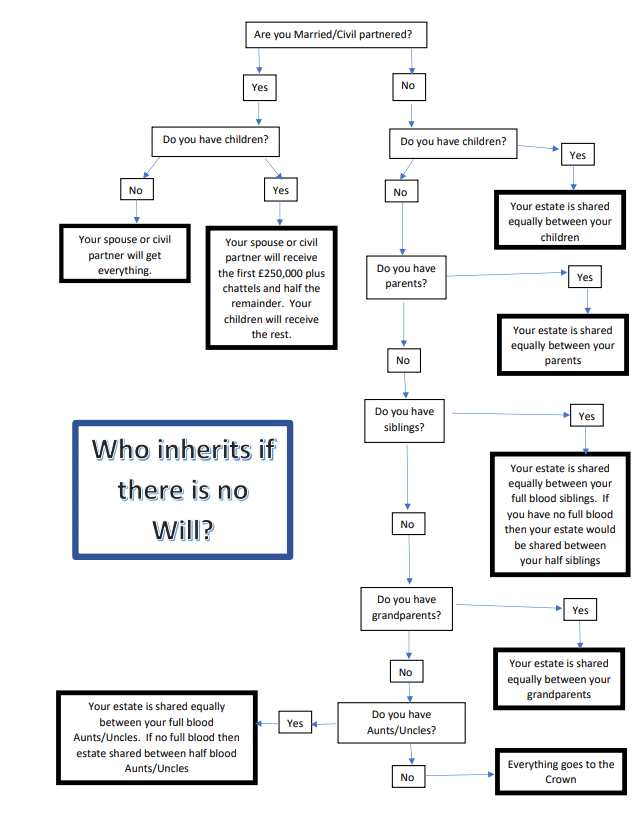


According to the 2021 Census, results have shown once again that the population in England and Wales has continued to age. The number of people over the age of 65 has increased to over 11 million, up by 2.2% on the previous census in 2011 when there were 9.2 million people.
We are an ageing nation and with this comes some issues that we must all increasingly consider and think about.
So, what are the issues and what should we be considering?
The first is to have a Will, which everyone should have once they reach the legal age of 18, as this is when you are an adult and can officially hold assets.
A Will is a legal document that allows you to decide where to leave your assets on death.
Without leaving a valid Will, you will be classed as dying “intestate”. This means that the intestacy Rules of the UK will apply to your estate, which provides strict rules on the priority of who can inherit from you. The effect of this is that worst case scenario, the Crown (King Charles) may inherit everything that you have. Please see our intestacy chart below.

Another factor that has arisen since COVID and a change in the Probate Registry Structure is that to obtain a Grant of Letters of Administration, a legal document that would allow you to administer and inherit from an intestate estate, the waiting time has increased from 3 weeks to anywhere up to 26 weeks or even longer for some estates.
It is therefore highly advisable that everyone have a Will, to make things easier and clearer for your family and/or friends.
Another issue from an ageing population is that we are seeing increased numbers of people suffering from Dementia related conditions. The dementia diagnosis rate in England was 64.5% in October 2023 according to NHS Digital Primary Care Dementia Data & Alzheimer’s Research UK.
It is more than likely that you have either experienced dementia directly in the family with an elderly parent or grandparent or have known someone who is caring for a family member with dementia.
Dementia does not automatically mean that a person has lost mental capacity, but it is a progressive declining disease and will likely cause the person to lose mental capacity in the future.
Although a family member may not be diagnosed initially with dementia, the following conditions may lead to dementia in the future, which some people are unaware of;
See our article here on ‘Do I need a Lasting Power of Attorney?
If a person already has a diagnosis of dementia, they do not automatically lack mental capacity. Dementia is a disease where you can still have lucid moments to make decisions. In order to make a Lasting Power of Attorney, you would need to get a mental capacity report from your medical practitioner to advise whether they can make a Lasting Power of Attorney or not.
If the medical practitioner concludes that your parent does not have enough capacity to be able to make a Lasting Power of Attorney, then the only option open to you, if they have not already made a Lasting Power of Attorney is to go to the Court of Protection to get a Court Order to be able to act and help your parent. See link here for more information on the Court of Protection.
If you need help or assistance on any of the issues raised, then please give us a call.

Ginette McCaffery Wills, Probate and Trusts Specialist Solicitor
Article Dated: 02/02/2024
Call us now, our phone lines are open 24 hours a day, 7 days a week 01302 349 480 or fill out our enquiry form here
Our friendly staff are on hand to answer any of your questions.